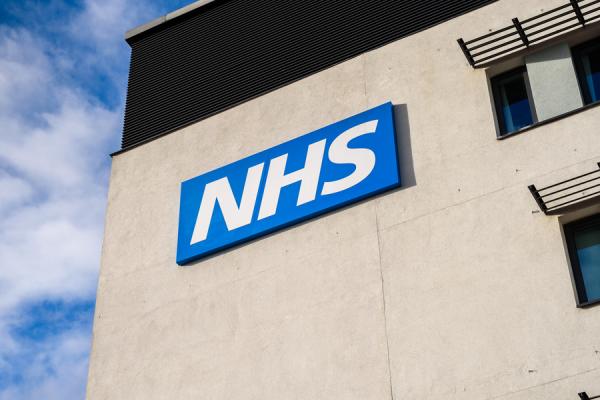Community Pharmacy Medicine Supply Issues
Community Pharmacy Lincolnshire, the Local Pharmaceutical Committee, thought that it might be useful to share an extract from a recent briefing on medicines supply issues produced by the national pharmacy negotiating body Community Pharmacy England (previously known as PSNC) with GPs, as we are aware that pharmacy contractors are increasingly having difficulty sourcing medications prescribed to patients, causing more workload for both pharmacies and general practice.
Community Pharmacy England Briefing Extract: Community Pharmacies and Medicines Supply
Community pharmacies in England dispense over 1 billion prescription items every year, with patients relying on access to these medicines for their health and wellbeing, and very often even to save their lives. But we are increasingly seeing disruption in the supply of medicines with problems both accessing them and procuring them cost effectively, and this a cause for great concern. Our members – community pharmacy owners in England – are under immense pressures and they have recently (July 2023) rated medicines supply instability as being the most severe pressure facing their businesses. The instability puts operational pressures on pharmacies, financial pressures on businesses, and for patients it means worrying delays.
What is the extent of the problem?
Our 2023 Pharmacy Pressures Survey found that:
▪ 92% of pharmacy teams are dealing with medicine supply issues daily, an increase from 67% in the 2022 pressures survey.
▪ Almost all pharmacy owners (97%) reported significant increases in wholesaler and medicine supply issues.
▪ And 71% of pharmacy owners reported significant increases in delays in prescriptions being issued.
These findings are echoed by other data and studies across the health and care landscape. One local HealthWatch survey in Oxfordshire found that 29% people had experienced delays in getting prescription medicines.
And in December 2022 the Nuffield Trust noted the worsening medicines supply situation saying: “The wider period since 2020 … appears to have seen spikes of elevated medicine shortages on nearly every available metric.”
Pharmaceutical wholesalers also report increasing instability in the market as they have to work ever harder to manage this volatility on behalf of their pharmacy customers. And one GP told us that medicines shortages have ‘a profound impact on general practice, affecting patient care, increasing the workload of healthcare providers, and undermining patient trust’.
What is the impact on patients?
Many patients will now be experiencing delays in accessing medicines – with some having to make several visits to a pharmacy to collect them. This can cause anxiety, worry, and frustration, as well as leading to a deterioration in health conditions. In our 2023 Pressures Survey 87% of pharmacy teams members said that patient health is being put at risk due to medicines supply issues.
What is the impact on pharmacies?
Pharmacists and their teams are having to spend significant amounts of time sourcing medicines: in our Pressures Survey 93% of pharmacy owners told us their staff were spending longer than ever before on medicines procurement. Pharmacies sometimes have to deal with deliveries that do not arrive or to manage minimum order surcharges or quotas. And they are often on the receiving end of patient frustration, with 84% of pharmacy owners saying they had experienced aggression from patients due to medicine supply issues.
When there are supply issues pharmacies also have to spend time explaining the issues and reassuring patients, liaising with prescribers, and in some case putting Serious Shortage Protocols (SPPs) into operation. SSPs can be activated by the Secretary of State as a way of helping to mitigate shortages by allowing pharmacies to dispense specific alternatives for patients, and while this is helpful, operationalising them can be complex and time-consuming for pharmacies.
What is causing medicine supply issues?
Medicines shortages and supply issues can be caused by a variety of factors from manufacturing issues, regulatory problems or distribution issues, to drug recalls, stockpiling or simply increased demand. Multiple drug groups and conditions are affected by supply and pricing issues these include drugs used in diabetes, epilepsy, HRT, and antibiotics used to treat Strep A which experienced a surge in cases at the end of 2022 beginning of 2023.
At Community Pharmacy England we believe wider medicines market problems are being caused by a combination of factors such as Brexit, COVID, war and inflationary pressures. It also seems to be the case that the very low prices of medicines (as driven by effective procurement by pharmacies) in the UK leave our market more susceptible to global market shocks.
The Nuffield Trust considered this in their December 2022 report, noting in particular five causes of issues as: the COVID pandemic, rapidly rising commodity prices, a surge in prescriptions for HRT products, Brexit, and some of the UK’s price-setting mechanisms. They conclude: “Unpicking which of these factors may be behind any individual shortage, or any wider spike, is very difficult.”
Community Pharmacy England are working with government asking them to take in four key areas:
- Reform of Serious Shortage Protocols (SSPs)
- Generic Substitution: Pharmacists should be allowed to supply any equivalent generic medicine against a prescription requesting a brand which may be in short supply
- Overhaul the concessions system[1]
- Undertake a strategic review of medicine supply and pricing
We hope the above can help clarify the reasons why your local community pharmacy may have issues obtaining prescription medications and may come back to you to discuss potential changes.
The above is taken from a publication by Community Pharmacy England www.cpe.org.uk
The full briefing, that is designed to lobby government for action, can be accessed here.
_____________________________________________
[1] Price Concessions are granted by the Department of Health and Social Care where they recognise that medicines cannot be procured in the market at Drug Tariff reimbursement prices. Concessions are not always an indicator of a shortage, as they represent a pricing issue, but they do give an indication of volatility in the market. Numbers of price concessions remain close to record highs.
_____________________________________________
Article written by Tracey Latham-Green, Chief Officer, Community Pharmacy Lincolnshire.
![]()




